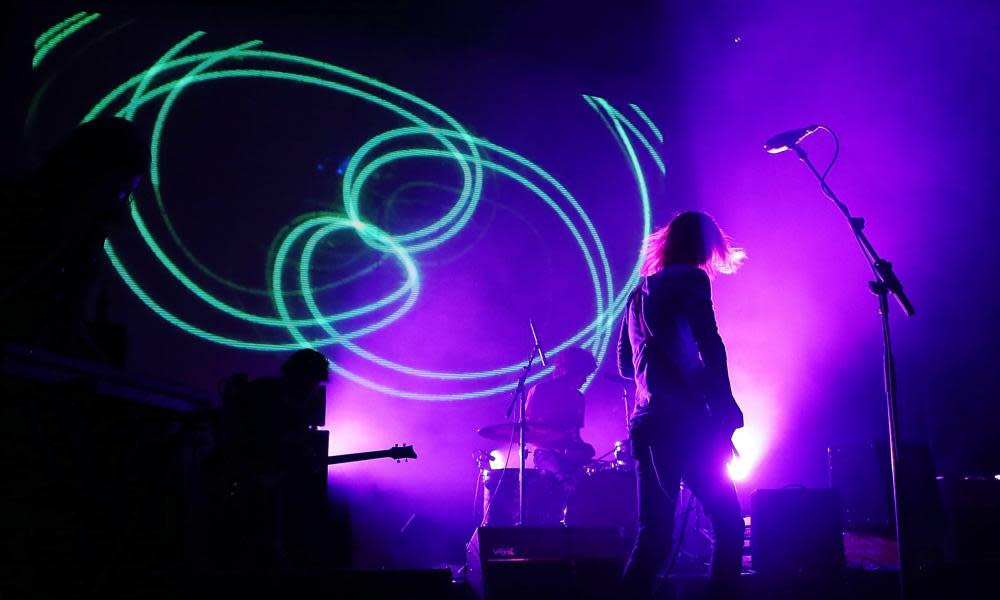Live music ‘crisis’: report urges NSW to lift unnecessary restrictions on venues

Unnecessary restrictions on live music venues in New South Wales should be lifted to help alleviate a live music “crisis” that is having a devastating effect on the cultural economy, a NSW parliamentary committee has found.
The committee into the music and arts economy in NSW on Thursday released their report, which found that the crisis extended from the grassroots music scene to the national touring circuit, and made 60 recommendations to the government, including an increase in funding for contemporary music of at least $35m over four years, to match that of Victoria on a per capita basis.
The report comes as the NSW legislative council votes on Thursday on changes to the liquor legislation amendment bill 2018, which are widely considered a windback to the controversial lockout laws, introduced in 2014 as a measure to combat late-night street violence.
However, the committee found that, rather than causing violence, the majority of evidence they received suggested the opposite. “The committee does not believe that there is a link between live music, in and of itself, and violence,” said the report.
The report did not recommend changes to the lockout laws specifically but it did include recommendations that NSW amend liquor legislation to remove “outdated” conditions for liquor licences that place “unnecessary restrictions” on venues, and for security requirements to be “evidence-based”.
The committee, led by Paul Green from the Christian Democratic party, received 437 submissions and held 11 public hearings over the past year, hearing from artists such as Client Liaison, the Hoodoo Gurus, the Screaming Jets, the Preatures and Urthboy.
Recommendations include significant changes to the way live music is administered in NSW, such as that the premier replace the minister for the arts with minister for music, the arts and culture, or appoint a specific minister for music, the establishment of a music development office, and the reinstatement of funding to the Live Music Office.
The committee also recommended special funding programs be developed for Indigenous musicians and that the government consider live music venues “assets of community value” similar to an approach taken in London. The government should also work to bring music industry professionals into regional areas, create youth-specific venues and all-ages gigs, and increase funding for community radio, the report said.
The report also examined the influence of gaming machines on live music and recommended redirecting tax from gaming machines to better support live music, by the creation of a community benefit fund.
The committee also recommended simplifying procedures around planning, regulation and licensing for live music venues, recommending planning measures such as funding to upgrade buildings, flexible zoning and measures to address issues like noise complaints in high-density areas. The closure of beloved inner-city venue the Basement in April was also noted in a recommendation around measures to support small to medium-sized venues.
“Not having a vibrant music industry will cost us greatly and bring embarrassment to our beautiful global city,” the report said.
The report also condemned the Sydney Night-Time Economy Taskforce, a coalition of 16 NSW government agencies and the City of Sydney, which was created in response to the Sydney Night-Time Economy Roundtable report in 2016. The taskforce was “ineffective” and lacking “necessary urgency and oversight”, leaving the industry to “languish”.
Some industry bodies have welcomed the report. In a statement, the APRA AMCOS chief executive, Dean Ormston, said the report provided “a roadmap for NSW to reclaim the state’s critical role as a true international hub of arts and culture in the region”.
Tyson Koh from Keep Sydney Open, an activist movement to support Sydney’s nightlife that morphed into political party, also welcomed the report, saying it was “significant” and calling on the government to act on the recommendations. “NSW Parliament now knows the extent of how precarious the music and cultural sectors are in this state, and can no longer plead ignorance to the current venue crisis,” said Koh.

 Yahoo News
Yahoo News 
